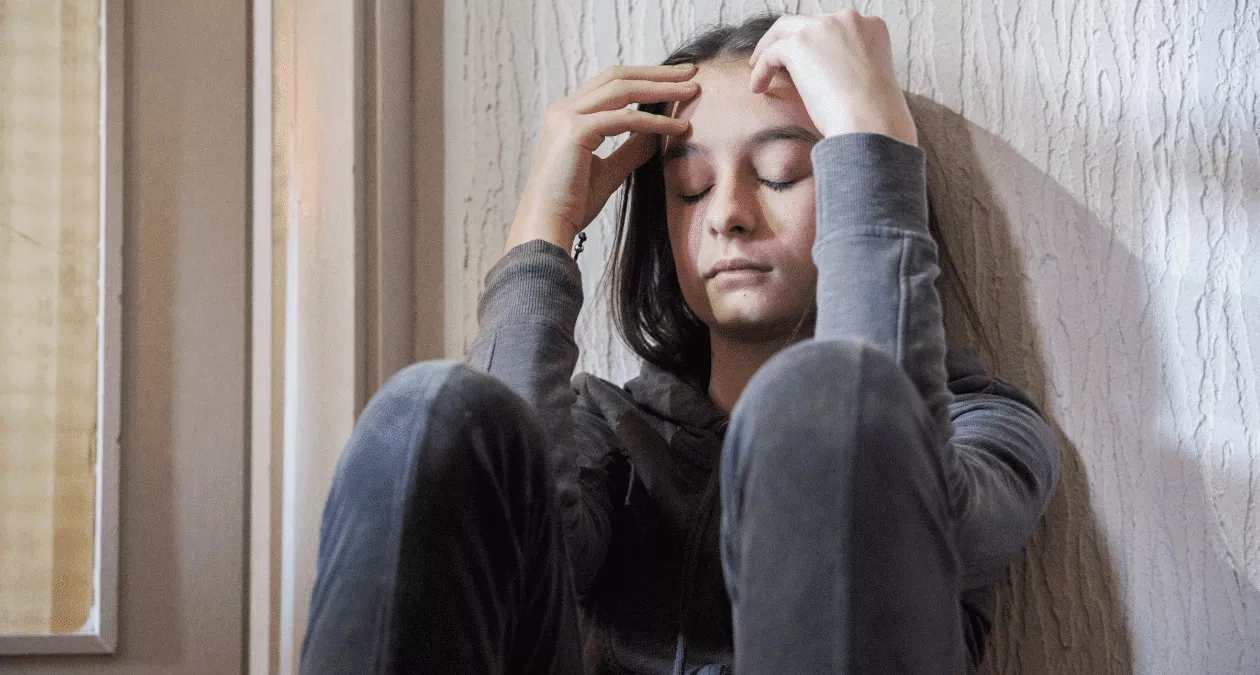Published on: February 8, 2021

For many of us, the coronavirus pandemic has brought extra burdens on our mental health. But for children and adolescents, the threats can be even more serious. That’s because children and teenagers may be more vulnerable to depression, anxiety and PTSD when their lives are upended. Not only are their brains not fully developed, they have not learned the coping skills to deal with long-lasting difficult situations.
Health studies have shown that in times of disasters, there is an increased risk of post-traumatic stress disorder (PTSD), depression, and anxiety. For many adolescents, the COVID-19 pandemic and lockdown have brought chronic stress, worry for their families, unexpected deaths, home confinement, and distance from friends. Decreased physical activity, irregular sleep patterns, more screen time and altered diets aren’t supportive of mental health, either. All of this points to the negative impact of COVID-19 on children’s mental health.
So what can parents do? Keep a lookout for signs of mental health troubles. Be aware that symptoms of depression in teens are different than in adults. Depression in adults usually shows up as a continuous low mood state as adults often withdraw from those around them and become more isolated. But for teens, happy news, events or distractions can temporarily shake them out of their mood. And they may also continue to associate with their close friends. But it doesn’t mean they aren’t struggling with depression.
There are other differences also when it comes to depression in adults vs. adolescents. Depressed teens will often express their emotions through anger and irritability, while adults are usually more sad and withdrawn. Children and adolescents may report their depression as “feeling mad” more than “feeling sad.” Sleep disturbances may also differ between adults and teens struggling with depression. Adults are more prone to experience insomnia when they are depressed. But teens will often still find time to sleep, even at odd hours.
Here are other signs of depression in teens:
Parenting a depressed teenager can be challenging. Currently, it may be hard to know if the depression is just a temporary struggle with a difficult situation, such as the coronavirus affecting children’s mental health in general, or if the symptoms of depression warrant more serious concern.
According to the DSM-5 diagnostic manual used by an adult, child, and adolescent psychiatrists, major depression in children and adolescents are identified by at least five of the following symptoms occurring over a period of at least 2 weeks:
If you’re convinced that your child or teenager is simply struggling with typical emotional challenges during the pandemic, here are some strategies you can use as a parent to support your child’s mental health:
If your child shows some of the more serious signs of depression identified earlier, you may want to consider child or adolescent depression treatment. Untreated depression can have serious, potentially long-lasting consequences. Teens can fall behind in school, lose friends, and have thoughts of suicide. The American Academy of Child and Adolescent Psychiatry recommends evidence-based treatment for children and adolescents with depression. Effective treatment options include psychotherapy (talk therapy), cognitive behavioral therapy, and interpersonal psychotherapy. Treatment may also include the temporary use of antidepressant medication.
Harmony United Psychiatric Care has mental health specialists trained in child and adolescent mental health, as well as adult and family, care. We offer psychiatric evaluations and treat a full range of mental health conditions, including depression, anxiety, bipolar disorders, PTSD, ADHD, and more. Our services include in-person appointments and online care throughout Florida. We accept most forms of insurance and can get your first appointment scheduled within 7 days. To schedule an appointment, visit our Book Appointments page, or call (800) 457-4573.
Discover the essence of Harmony United Psychiatric Care through our impactful numbers. Our experienced team is dedicated to fostering mental well-being.
10
+
Years of Experience
With 10 years of unwavering commitment to mental health, we bring a wealth of experience to support our patients on their journey.
About Us58
+
Providers
Our dedicated team comprises 58 skilled therapists', psychiatrists', psychologists', ensuring personalized and expert care for each individual.
Providers13
+
Locations
Across multiple locations, we extend our reach to provide accessible mental health care tailored to diverse communities.
Locations70000
+
Patients Served
Over 70000 patients have entrusted us with their mental well-being, experiencing compassionate care and positive outcomes.
Book AppointmentWelcome to the latest edition of “Discover Harmony,” the newsletter from Harmony United Psychiatric Care! In this edition, we bring you insights, updates, and valuable information to support your mental well-being journey.
Subscribe to newsletter